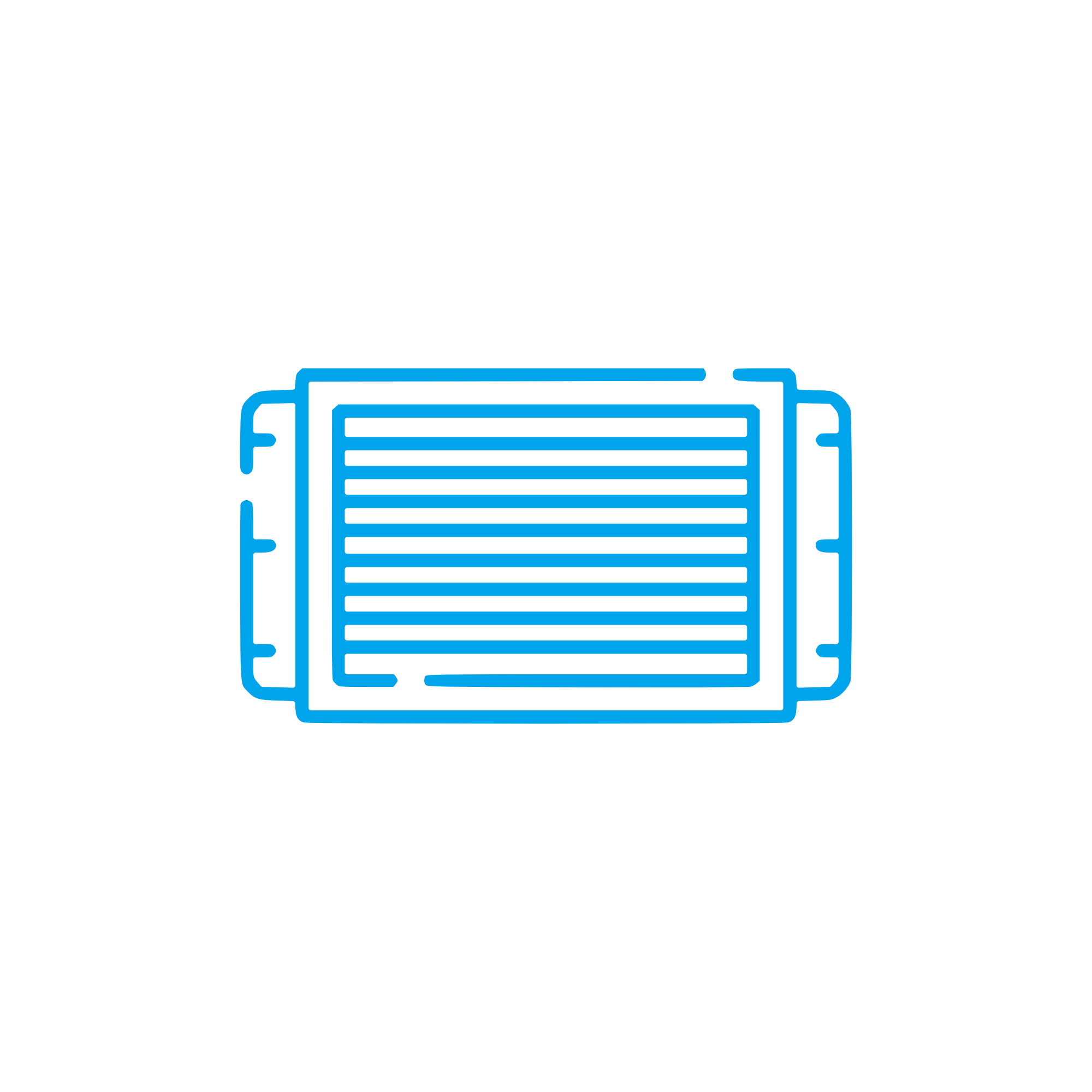FUEL COOLER Coolers for diesel and marine engines
Coolers are precision-engineered heat exchangers that control temperatures of vital engine media such as fuel, lube oil, charge air, and jacket water. Within high-output diesel and gas engines—on vessels, in power plants, and across industrial applications—reliable temperature regulation is essential for efficiency and protection. This article category covers Coolers with a special focus on the FUEL COOLER, a component that stabilizes fuel temperature to protect injection equipment, maintain viscosity, and deliver consistent combustion quality under all load conditions.
Technical function of Coolers and FUEL COOLER units in engines
In an engine, Coolers transfer heat from a hot process stream to a colder medium, typically freshwater-glycol or seawater. Designs include plate-type and shell-and-tube assemblies, sized to meet defined heat loads, flow rates, and allowable pressure drops. The FUEL COOLER specifically removes excess heat from the fuel circuit. In common-rail and unit pump systems, recirculated fuel is compressed and sheared, returning to the tank at elevated temperatures—often exceeding 70–90°C. A well-specified FUEL COOLER for a marine engine or diesel engine brings this temperature down to a controlled setpoint to preserve density, viscosity, and lubricity.
Stable fuel temperature ensures predictable injection timing and spray characteristics, avoiding vapor formation that could trigger cavitation in pumps or injectors. On heavy fuel and MGO/MDO systems, keeping fuel within the target range protects seals, prevents coking on injector tips, and supports emissions performance. Whether the FUEL COOLER is built as a compact brazed plate exchanger for limited spaces or a corrosion-resistant cupronickel/titanium shell-and-tube for seawater service, its job is to safeguard the fuel system while minimizing energy loss and pressure drop.
In practice, the FUEL COOLER diesel engine configuration is integrated with temperature control valves, strainers, and differential pressure monitoring. Proper layout ensures adequate approach temperature, avoids air pockets, and maintains Net Positive Suction Head (NPSH) for feed and booster pumps. For shipboard systems, materials and geometry are selected to resist fouling and galvanic corrosion, with anodes and serviceable tube bundles facilitating maintenance. FUEL COOLER OEM parts safeguard specified heat-transfer coefficients and mechanical integrity across the full operating envelope.
- · Controls fuel temperature for stable viscosity and density.
- · Prevents vapor lock, cavitation, and injector wear.
- · Protects pumps, seals, and precision clearances.
- · Supports combustion efficiency and emissions targets.
- · Reduces thermal stress on the fuel return and tank system.
- · Engineered for low pressure drop and high heat flux.
- · Marine-ready materials for seawater or glycol circuits.
- · Serviceable designs: plate packs or pull-out tube bundles.
Why Coolers and FUEL COOLER components are critical for engine reliability
Temperature stability is a direct driver of engine reliability and lifecycle cost. When Coolers underperform—due to fouling, erosion, or internal leaks—temperatures rise, lubrication films thin, and components are exposed to abnormal loads. A compromised FUEL COOLER allows excessive fuel temperature, leading to reduced fuel density, altered injection mass, and poor atomization. The knock-on effects include higher specific fuel consumption, uneven cylinder temperatures, injector coking, and increased NOx and particulate formation. In severe cases, vapor in the fuel rail causes misfiring or power loss.
Cross-contamination is another risk. Tube failures can mix seawater or coolant with fuel, harming injection equipment and creating safety hazards. Unplanned downtime to address such failures far exceeds the cost of preventive replacement. By keeping Coolers—and especially the FUEL COOLER marine engine system—in top condition, operators extend service intervals, stabilize output, and protect high-value components like high-pressure pumps and precision injectors.
Advantages of OEM spare parts suitable for Coolers and the FUEL COOLER
Choosing OEM spare parts suitable for Coolers yields measurable operational and financial benefits. Heat exchangers and FUEL COOLER assemblies are defined by tight tolerances: plate geometry, turbulence promoters, gasket compounds, tube metallurgy, and brazing quality directly determine heat transfer, durability, and cleanliness. Components manufactured to the engine maker’s specification deliver the rated kW/°C capacity, verified pressure ratings, and corrosion resistance required for long-term service.
With OEM spare parts suitable for the FUEL COOLER diesel engine circuit, you maintain the designed approach temperature without excessive flow or pump penalty. Correct gasket elastomers (e.g., FKM/NBR) withstand fuel chemistry and temperature cycles. Certified materials—such as stainless steels, cupronickel, and titanium—resist pitting in marine duty. Traceable production and dimensionally correct interfaces ensure a clean fit with pipework, brackets, sensors, and temperature control valves—reducing installation time and leak risk. The result is dependable performance, predictable maintenance planning, and optimized total cost over the engine’s life.
In short, FUEL COOLER OEM parts protect performance, reliability, budget, and service life by preserving the engineered balance between heat load, flow rate, and mechanical integrity.
MOPA: fast, high-quality supply of OEM parts for Coolers and FUEL COOLER systems
MOPA is an experienced and reliable partner for OEM spare parts suitable for Coolers, including complete FUEL COOLER assemblies and service kits. We prioritize speed, quality, and security in the trade of OEM parts for diesel and gas engines. Our team supports you with precise cross-referencing, prompt quotations, and rapid dispatch to minimize downtime—whether you manage a fleet of vessels, a power station, or industrial gensets.
MOPA’s supply scope spans plate packs, tube bundles, covers, end plates, gaskets, O-rings, fasteners, anodes, sensors, and temperature control valves. We provide documentation and test certificates where required, ensuring the parts align with your technical and compliance needs. With MOPA, you gain a dependable source for FUEL COOLER OEM parts and a partner who understands the practicalities of marine engine and diesel engine operations.
Conclusion: the role of Coolers and the FUEL COOLER in efficient engines
Coolers are foundational to engine health, and the FUEL COOLER is central to stable combustion, injector protection, and reliable power delivery. By selecting OEM spare parts suitable for Coolers, you preserve heat-transfer performance, reduce risk, and extend service life while controlling lifecycle costs.
MOPA supports you with swift, secure sourcing of OEM parts for diesel and gas engines—so your cooling systems perform as engineered, voyage after voyage and run after run.

